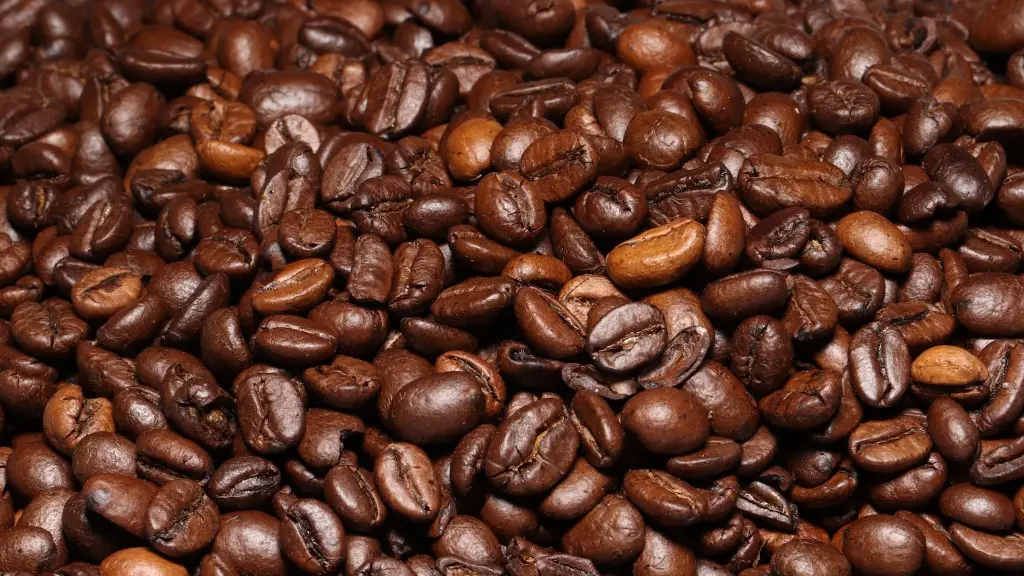Many people are asking themselves whether it is safe to drink coffee before a treadmill stress test. This concern is quite common as the wrong kind of preparation can make the test results unreliable. We take a look at the science behind it to figure out how best to approach the situation.
When it comes to drinking coffee before a test, the major concern revolves around the effects of caffeine on the heart. Caffeine is known to increase heart rate and blood pressure and could potentially lead to false results if it interacts with the blood pressure reading measurements taken during the test.
According to a 2017 study published in the Journal of the American College of Cardiology, drinking two cups of coffee before a treadmill stress test can have an effect on the test results. The study found that the caffeine consumed “had an effect on the performance” and that “these effects were stronger in women than in men.” This means that if you’re a woman, it might be best to avoid drinking coffee before the test to ensure reliable results.
However, this doesn’t mean that it is not possible to consume some caffeine while preparing for a treadmill stress test. According to a study published in the journal Circulation, consuming up to 300 milligrams of caffeine (the equivalent of two to three cups of brewed coffee) can improve exercise performance without any significant effects on test results. That said, it’s important to remember that everyone is different and reactions may vary, so it’s best to talk to your doctor to get a personalized recommendation.
In addition, if you don’t consume coffee on a regular basis, it might be a good idea to avoid caffeine altogether before your test. Caffeine has a half-life of six hours, and if you’re not used to consuming it on a regular basis, it could cause adverse effects, such as a rapid heartbeat or lightheadedness. The best approach is to avoid caffeine before the test, drink plenty of water, and get a good night’s sleep the night before.
In conclusion, while it is possible to consume a moderate amount of caffeine before a treadmill stress test, the effects on your test results and general wellbeing may vary, so it’s best to talk to your doctor to get personalized recommendations.
Effects on Performance
Caffeine consumption before a treadmill stress test has also been linked to improved exercise performance. In a study published in the journal Circulation, researchers found that moderate doses of caffeine consumption prior to exercise can improve exercise performance. This suggests that if you have low energy levels or are feeling fatigued, then drinking coffee might be beneficial before the test.
However, it is also important to take note that caffeine is a stimulant, and as such, can bring on anxiety and jitteriness. It is important that you consume the right amount of caffeine to avoid these potential side effects. The American College of Sports Medicine recommends a maximum of 200-300 milligrams of caffeine for an effective, but not excessive, dose.
Another important thing to take into consideration is that the effects of caffeine can vary from person to person, and many people are more sensitive to the stimulatory effects of caffeine than others. So, if you’re not used to consuming caffeine, it might be best to avoid it before your test.
Finally, it is important to remember that caffeine is addictive, so if you use it regularly, it might be best to start weaning yourself off before the test. This can help to ensure that your results will be more reliable.
Long-Term Health Benefits
In addition to the benefits that caffeine can bring to exercise performance, there is also some evidence to suggest that it can have long-term health benefits as well. The European Food Safety Authority has concluded that moderate caffeine consumption of up to 400 milligrams per day (around four cups of brewed coffee) can reduce the risk of cardiovascular diseases.
This is not to say that drinking coffee is a substitute for a healthy lifestyle, as regular exercise and a balanced diet are still essential for overall health. However, what it does suggest is that moderate doses of caffeine can provide some health benefits, which are worth considering if you’re wondering whether to drink coffee before your treadmill stress test.
Another important thing to consider is that caffeine affects everyone differently, so it is important to know your own limits. Too much caffeine can lead to anxiety and insomnia, and can also make you feel jittery and on edge. If you feel like you’re becoming addicted to caffeine, or experiencing any of these symptoms, then it would be best to cut back or avoid it entirely.
Caffeine Alternatives
If you want to avoid caffeine altogether before the treadmill stress test, there are plenty of alternative options. Drinking green tea or black tea is a good option, as they contain less caffeine than coffee. If you want a stimulant-free alternative, you could consider drinking herbal teas like chamomile or valerian root, both of which are naturally calming. Or you could try eating a banana, as they contain plenty of natural sugars that can provide a boost of energy without the adverse side effects of caffeine.
Another option is to consume whey protein with honey, or another type of protein source with carbohydrates. Protein helps to maintain muscle mass and the carbs provide energy for your workout, which can be beneficial for an optimal performance before the treadmill stress test.
In addition, engaging in light stretching or yoga before the exercise test can also help to boost energy levels and prepare your body for the test. This can help to improve performance and reduce the risk of injury as well.
In conclusion, while caffeine can have positive effects on performance and health, it is important to consider your individual case before consuming it. If you don’t usually drink coffee, or if you want to avoid the side effects of caffeine, there are plenty of caffeine-free alternatives that you can consider before the test. Ultimately, it is up to you to decide how best to prepare for the treadmill stress test.
Nutrition Strategies
Nutrition strategies can also be effective when it comes to preparing for a treadmill stress test. Eating a balanced meal before the test is important, as the body needs adequate energy in order to complete the test. Complex carbohydrates and proteins are both good sources of fuel for the body and can help to boost energy levels.
When it comes to complex carbs, some good options to consider include oats, quinoa, and sweet potatoes. For proteins, lean meats such as chicken, turkey, or lean beef are great sources. Fruits, vegetables, and other sources of healthy fats such as avocados, nuts, and seeds are also beneficial for helping to provide the body with energy.
It is also important to remember to stay hydrated before the test. The body needs water to function optimally, and consuming enough water can help to give an extra boost of energy before the test. The American College of Sports Medicine recommends drinking at least 17 ounces of water two hours before the test.
Finally, if you have time, it is also worth doing some light stretching and warm-up exercises before the test. This can help to prepare the body for the test and reduce the risk of injury.
Mental Preparation
Mental preparation is also essential when it comes to doing a treadmill stress test. Being in the right frame of mind can help to ensure a successful test, as it can make all the difference between an enjoyable experience and one filled with anxiety and worry.
The first step is to set realistic expectations and goals. Have an understanding of what the test is trying to measure and what it is looking for. This can help to reduce anxiety, as you’ll be in control and will know what to expect.
It is also important to remember to stay positive. It is normal to feel nervous, but allowing yourself to become overwhelmed or negative can lead to poor performance. Instead, focus on the positive and remind yourself that you are capable of success.
Getting a good night’s sleep is also essential for optimal performance, as this will help to improve concentration and focus. Finally, it is also important to make sure that you eat a balanced meal and drink plenty of water before the test, as this will help to fuel the body and prepare it for the physical exertion.





